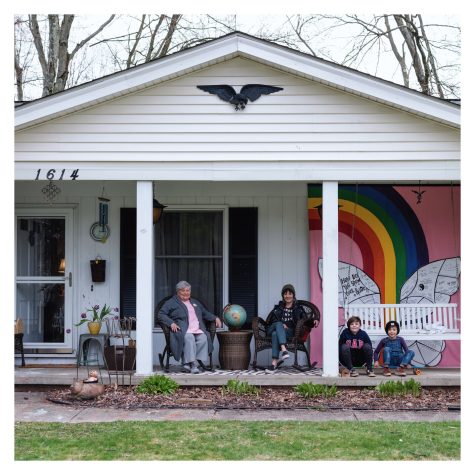One year into the pandemic, students who studied abroad are still faced with the toll it took on their mental health
March 5, 2021
Standing in one of the most famous cities in the world, surrounded by history and culture, two girls sit bawling their eyes out while leaning onto a fence that surrounds the Santa Maria del Fiore Cathedral. Rebecca Dearth, a senior interior design major, and her friend, along with the rest of the students studying abroad in Florence, Italy, had just been told they must return to the United States for fear that the coronavirus was rapidly spreading.
“I saw people that I’m friends with just break down to the floor crying because they were just so upset that they were being sent home and because they had waited a whole year for this experience,” Dearth said.
What was supposed to be a memory-filled semester ended after just eight weeks. Students hastily packed their things and left the country within the same week. They were also expected to quarantine for two weeks after arriving home. Adjusting to a new physical environment and also adapting to online learning in addition to processing and coping with a once-in-a-lifetime experience being abruptly cut short, students began to feel the weight of what happened.
“It was just so mentally draining because I had sadness and then I had to go through this stage of boredom and it’s just been ongoing ever since I got back from Florence,” Dearth said.
While most students could admit to being upset over the situation, everyone struggled with their mental health in a different way.
“In terms of mental health, when I came home I definitely hit a patch of depression just because I love to travel; that’s what I grew up doing, so coming home and quarantining for two weeks and doing nothing, being trapped at home, it was horrible,” said Alyssa Vargo, a senior interior design student.
Despite being sent home nearly a year ago, those who were abroad are still feeling the toll it has taken on their mental health.
“Going into quarantine, there was nothing else to do and the sadness from leaving and the anger I felt caused me to eat a lot and that took a toll on my mental health the most and from there, it just spiraled into depression,” Dearth said.
For some, it was their last opportunity to study abroad and that only added to the heaviness of the situation. Vargo said that if it weren’t for her graduating, she would try to study abroad again.
“It’s great to be there for a few weeks but nothing compares to staying there for longer and actually living there. Of course I’ll definitely go back. How? I don’t know, but I’ll definitely make it back eventually,” Vargo said.
Students weren’t the only ones who felt the impact of being sent home early. Professors didn’t officially say good-bye to their students and had the challenge converting classes to a virtual setting weighing on them. In the end, class meeting times changed to accommodate the time difference between the United States and Italy and some classes became asynchronous.
“We had to rearrange things in no time,” said Federico Grazzini, an interior design professor in Florence. “I was sad because I imagine for them it was like being dragged out of a life-changing experience.”
Despite the pandemic turning an already unique semester upside down, some choose to remain positive.
“It’s almost been a year since I came home and it’s kind of sad to look back at these memories but at the same time, I am grateful for the opportunities I did have,” Vargo said. “I’ll always be grateful and I’m just looking forward to the next time I can visit.”
Cassidy Gladieux covers mental health. Contact her at [email protected].
























